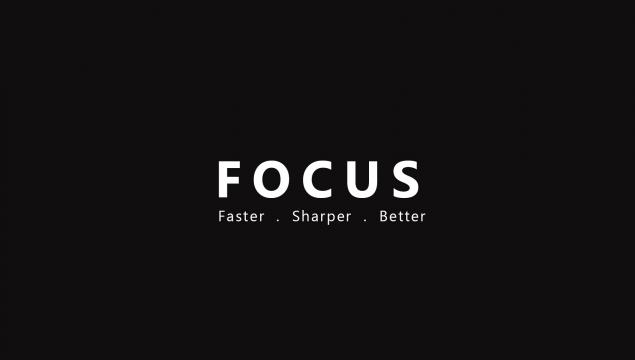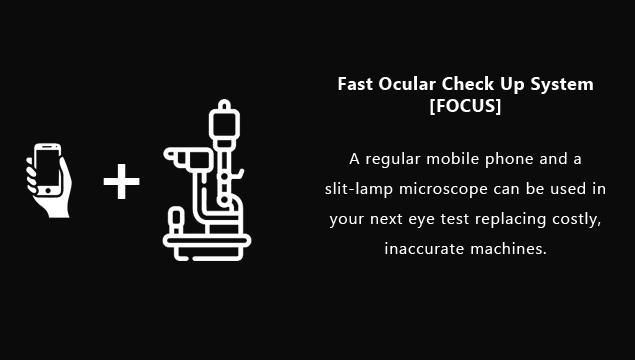Easy, Accurate and Quicker Way of Diagnosing Eye Disease | Fast Ocular Check Up System [FOCUS]
Why This Project Is Important
Did you know about 2.2 billion people on this planet suffers from some kind of eye disease? Did you know about 80% of the blindness is preventable with proper diagnosis and care? Unfortunately, we do not have that infrastructure available. For example, if you have ever been to an eye clinic, you have probably seen a big machine called a specular microscope. This is used to capture corneal images. In simple term, this is just a very costly camera. How costly you ask? How about $25,000? And for a costly camera, this produces very poor quality images. In comparison, a $200 mobile phone captures 60 times better images than this. Not just that, this device is bulky, resource consuming and inaccurate. That is why doctors across the globe do not rely on its automatic algorithm and prefer manual analysis. That brings me to our project. We have decided to use our regular mobile phones along with a cheaper and lighter microscope called a slit-lamp microscope to capture corneal images. And then, the technology that goes into your mobile phone to detect your face every time you take a selfie or identify your friends every time you post something on social media, could be used to extract pathological information. This device is lightweight, cheaper and most importantly, accurate. When the global standard is 90-95% accuracy, our algorithm is 98% accurate for cell detection. For Fuchs Dystrophy, which is the leading cause of cataract surgery, our algorithm has a 100% accuracy of detection. We believe once this product is ready, it will be able to help millions of people across the globe and give optometry researchers a new tool. So next time, if you go to see an eye doctor and find him playing with his mobile phone, don’t get offended. He is probably using our app to understand your corneal health.
Project Description
Healthcare across the globe is dominated by multinational corporations. Hospitals are filled with big machines and numerous other instruments that cost more than they should and there are scopes for improvement. The field of optometry is no exception. But the question is, who cares? Patients and some doctors. Our project challenges the status quo by creating a mobile application that could be used to detect corneal diseases fast and accurately. Our current prototype works better than the available machines and software, and we hope to bring the application to the market as quickly as possible.
Meet the Researchers


Lisa Casper
Innovation Center for Entrepreneurship Program Manager, Michigan Technological University
Master of Business Administration, University of Oregon
Bachelor of Science Aeronautical Science, Embry-Riddle Aeronauitical University
What Your Donation Can Help Us Do:
- Purchase materials/supplies
- Testing
- Collect more data
- Develop a quick prototype
Recent Donors
Some donors may be hidden.


 Gifts to projects listed on SUPERIORIDEAS.ORG are received and processed by Michigan Tech Fund. Michigan Tech Fund is a tax-exempt organization under Section 501(c)(3) of the Internal Revenue Code acting on behalf of Michigan Technological University. It is the policy of Michigan Tech Fund that a portion of the gifts and/or income therefrom may be used to defray the costs of raising and administering the funds.
Gifts to projects listed on SUPERIORIDEAS.ORG are received and processed by Michigan Tech Fund. Michigan Tech Fund is a tax-exempt organization under Section 501(c)(3) of the Internal Revenue Code acting on behalf of Michigan Technological University. It is the policy of Michigan Tech Fund that a portion of the gifts and/or income therefrom may be used to defray the costs of raising and administering the funds.